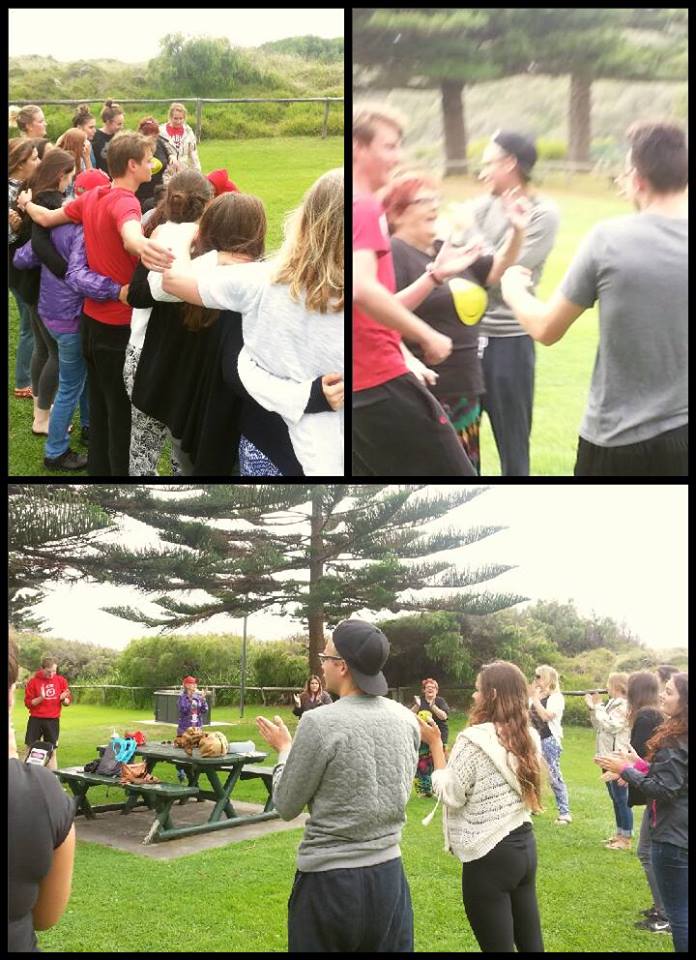Healthy Relationships
Relationship as Tapas
Once a student asked her teacher:
"Could you tell me what healthy relationships should be like?
I am having trouble with my closest relationship at the moment."
The master replied with a couple of questions:
"Is your relationship nurturing? Is it purifying?"
The student thought for a moment:
"Nurturing - yes, sometimes. But purifying? In what sense?"
"Does it burn your ego? Does it feel like fire once in a while?"
"Yes, it sure does," she replied with a smile.
"Well, there you have it," the master confirmed: "Any good healthy relationship must be both nurturing to your values, beliefs, and ideals, and uncomfortable, or purifying, to your ego. ... So this conversation, for example, is nurturing. Now please go and wash all the dishes in the kitchen and the floor in the bathroom - that's purifying."

# Nurture your closest relationships
1. At the start of each day, take a moment to determine what you can do or say today to show love and affection to your partner.
2. Decide when and how, specifically, you are going to show it.
Purification happens by itself - our egos and individual differences make sure of that.
What we can and should work on is making sure we provide the nurturing aspect in our relationships.
Our closest relationship, whether with a parent, a child, a marriage partner, or a friend, can be challenging at times. In those times, it's easy to see fault with others and try to 'help' correct their actions, to 'help' them be a better person.
In every one of those instances, our 'help' and energy are wasted. We can never really affect change in someone by getting them to shape up and clean up their act.
The only person you can control is YOU.
This is where our effort should go:
# Practice Acceptance
1. At the start of each day, make a commitment and a verbal statement to yourself to be more accepting of others, no matter their actions.
Allow your closest partner and other people in your life to be they way they are.
# Use Kindness of Words
At the start of each day, make a commitment and a verbal statement to yourself to use kind words toward your partner.
# Practice Forgiveness
If there are words or actions of others who have hurt you - if appropriate - practice forgiveness by making a commitment and a verbal resolution with yourself each morning, something along the lines of "I am willing to forgive ...so and so... and move on with our lives in a new and positive light."
# Contemplate Following Questions at the Start of Each Day
Can I be different to allow and accept my closest mate the way they are?
Can I be a source of unconditional love for them?
Can I work on being more loving in the face of hardships?
Can I work on being more kind with my words?
Can I work on being more compassionate despite adverse circumstances?
Can I work on being more accepting of others' faults?
Can I work on being more forgiving of others' negative actions?
Can I cultivate an inner strength and resourcefulness to withstand any difficult and negative situation with an inner smile?
Can I be more diligent, more creative, more cooperative?
# Stay in touch with friends
1. Send a quick note, email, or mail a card on their birthdays, or anniversaries. Simply check in with a friend. Tell them they are in your thoughts.
2. Organize a regular time to hang out: hike, camp, go for a run, get a bite to eat, or meet for drinks. Put it on your calendar each month.
Happiness comes from making a difference in lives of others.
Spiritual Teacher
Another healing relationship is the presence of a spiritual teacher. Even the most advanced spiritual masters have a teacher.
Having a teacher, a mentor, or a spiritual ally, should not be underestimated. It's healing, empowering, uplifting, and grounding.

# Connect with a spiritual mentor/teacher
1. Stay in touch with them on a regular basis. It does not have to be in person - you do not even need to know a spiritual teacher in person - you can simply read their writings, immerse yourself in their teachings. Who are the Buddha, Muhammed, and Jesus but spiritual guides whose teachings we read and learn from?

# Stay connected to a healing support group, or a spiritual community
Another Yogic Lifestyle relationship is being in a group of like-minded individuals who are on the same, or a similar, path as you are.
Group support has shown to be critical in cancer recovery, addiction treatment, and violence prevention.
There are many such groups and communities all around. Look into different yoga or spiritual centers. Check out different healing centers. It must feel right to you. It must feel like home.
Yoga community of like-minded spiritual seekers is called Yoga Sangha. If you can't find a Yoga Sangha in your area, create your own.
You may already have a circle of friends whom you 'hang out' with. Those may or may not be the kind of healthy relationships you need.
If your friends tend to engage in gossip and negative talk, steer clear of it, or allot yourself a limited time for it. Or it will drag you down (and your physical health).
Suggestions:
1. Yoga centers/ashrams;
2. Buddhist temples/meditation centers;
3. Theosophical Society (
http://www.theosophical.org );
4. Self-Realization Fellowship (
see their website here);
5. Transcendental Meditation/Mindfulness meditation groups;
6. EXPOs on Holistic Health and Spirituality are also good places to connect to a number of organizations that promote spiritual community and such healthy relationships.
|